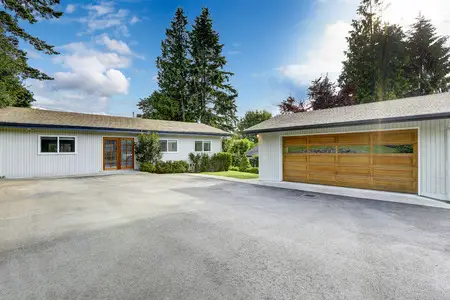The 5 Biggest Mistakes Arizona Tax Lien Investors Make
Is it February Again?
Every February in Arizona, all 15 counties hold tax lien auctions. Tax liens on parcels with unpaid taxes are put up for sale. Investors are allowed to bid on each Arizona tax lien.
The bidding starts at 16% and goes down from there (potentially all the way to 0%). The lowest bidder is the winning bidder and receives a certificate of purchase for the tax lien. If there is a tie, either the first to bid that amount wins or the county uses a random number generator to pick a winner.
The winning bidder pays the county the back taxes on the parcel.
Redemption / Foreclosure
If the property owner wants to redeem the lien, he/she must pay the investor back the amount of back taxes plus the interest rate they bid (plus additional fees to the county).
If the property owner does not redeem the lien within 3 years of the date the lien first went to sale, the investor can start the process to foreclose on the lot.
If the property is still not redeemed once the foreclosure process is completed, then the investor is given a treasurer’s deed granting the investor ownership of the property.
This type of investment appeals to a lot of people. “Earn a great interest rate, secured by real estate, and if I don’t get paid back, I can potentially get a huge windfall by foreclosing on the property.”
The reality is much different. Investing in Arizona tax liens requires specialized knowledge and a deep understanding of all the pitfalls and hurdles along the way.
5 Most Common Arizona Tax Lien Mistakes
It is impossible to become an expert in Arizona tax lien investing without not only studying but actively participating in tax lien auctions. New investors that jump into Arizona tax lien investing make a wide variety of mistakes. Here are the most common ones:
1.) They bid the interest rate too low
Some shady gurus compare investing in tax liens to the safety of having money in an interest-bearing bank account.
That is completely false. Tax liens are highly illiquid and could require additional funds to pay subsequent taxes and foreclosure costs.
The underlying real estate could have a variety of problems and the value could decline substantially between the auction date and the eventual foreclosure date.
The investor needs to be compensated for all these risks; bidding a property to 2 or 3% doesn’t even begin to suffice.
2.) They bid on low value properties
You need to be mindful of the fact that if the property owner does not redeem your tax lien, you will have to eventually foreclose in order to recover your investment capital (plus profit hopefully).
A normal tax lien foreclosure could easily run from $2000 to $4000 in legal fees.
That amount plus the original tax lien investment and subsequent taxes will need to be paid before you can even think about selling the property.
Additionally, low value properties (like an acre of land in the middle of the desert) are often extremely difficult to sell.
3.) They don’t budget funds to pay subsequent taxes
If you don’t pay taxes each year on the property, the tax lien for the property will again go on sale the following February and you could lose your position to the new bidder.
If you plan on eventually foreclosing on the property, you need to budget not only the original tax lien amount but the annual taxes due July immediately after the sale and the next 2 years after that.
4.) They spend too much time analyzing each property
When the list of tax lien properties going to auction is made available by the county in late January to early February, the investor has very little time to prepare for the sale (possibly only 2 weeks).
There is no possible way you can treat due diligence the same way you would if you were buying a house or investment property.
You need to follow very high level rules of thumb (like eliminating extremely low value properties) to whittle the list with possibly 1000 or more properties down to a more manageable level.
5.) They overestimate the likelihood of foreclosure
Most properties end up being redeemed prior to foreclosure.
Instances where someone buys a $3000 tax lien and ends up foreclosing on a $150,000 house are extremely rare if not practically non-existent.
Either the owner of the property or their mortgage company (if there is one) will usually redeem the property.
In most cases, a tax lien foreclosure results in some profits for the tax lien holder, but not the windfall profits that some would have you believe.
These 5 rules are a good starting point for the new Arizona tax lien investor, but by no means a comprehensive list of everything that could go wrong. Good luck and always remember, stick to your game plan and don’t get caught up in the bidding mania.






